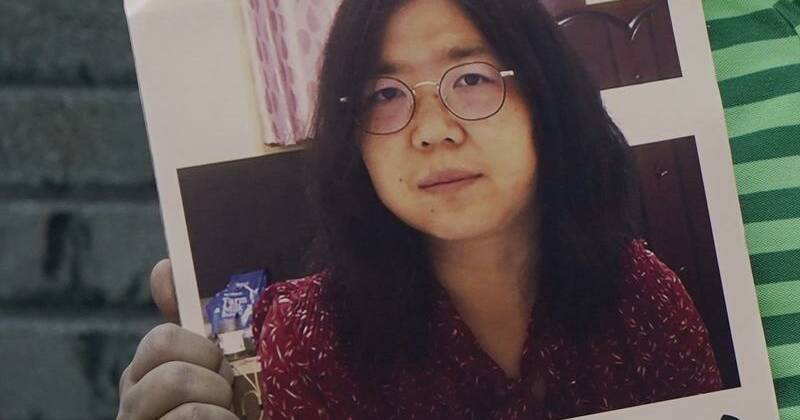
A Chinese journalist, Zhang Zhan, has been sentenced to an additional four years in prison for her reporting on the early stages of the COVID-19 pandemic. This ruling was confirmed by Reporters Without Borders (RSF), which stated that Zhang’s sentence was handed down under the vague charge of “picking quarrels and provoking trouble.” This is the same charge that led to her initial imprisonment in December 2020, following her firsthand accounts of the outbreak from the central city of Wuhan.
Zhang, 42, documented the early spread of the coronavirus through videos and reports that depicted a more severe situation than the official narrative suggested. Her work illustrated crowded hospitals and deserted streets, providing a stark contrast to the government’s portrayal of the crisis. According to RSF, Zhang’s latest sentencing follows her continued reporting on human rights abuses in China, which has drawn international attention.
China’s Foreign Ministry did not respond to inquiries regarding Zhang’s case, and it remains unclear whether she has legal representation. RSF Asia-Pacific advocacy manager Aleksandra Bielakowska called for Zhang to be recognized as an “information hero,” emphasizing that her ordeal should prompt a global outcry for her release. “Her persecution must end,” Bielakowska stated, urging international diplomatic pressure on Beijing.
Zhang’s legal troubles began after she posted accounts and videos detailing the initial response to COVID-19. Her lawyer at the time, Ren Quanniu, noted that she believed she was being persecuted for exercising her freedom of speech. Following her initial arrest, she went on a hunger strike, which led to police restraining her and force-feeding her through a tube, according to her lawyers.
After being released in May 2024, Zhang was detained again just three months later. She was formally arrested and placed in Shanghai’s Pudong Detention Center. Ren posted on social media platform X, asserting that the new charges against Zhang related to her comments on overseas websites and argued that they were baseless.
Zhang’s repeated trials have drawn criticism from various organizations, highlighting what they describe as a blatant act of persecution for her journalistic work. Beh Lih Yi, Asia-Pacific director for the Committee to Protect Journalists, stated, “This is the second time Zhang Zhan has faced trial on baseless charges.” She called on Chinese authorities to cease Zhang’s arbitrary detention and drop all charges against her.
China currently holds the record for the highest number of imprisoned journalists globally, with at least 124 media workers behind bars. In the 2025 RSF World Press Freedom Index, China ranked 178th out of 180 countries and territories, reflecting a severe climate for press freedom.
In a related development, just a week prior to Zhang’s latest sentencing, China’s top lawmakers passed a bill aimed at expediting public health emergency responses. This legislation allows citizens to report emergencies directly, bypassing the government’s traditional hierarchical structure. Such measures underscore the ongoing tension between state control and the need for transparent information dissemination, as exemplified by Zhang’s case.







